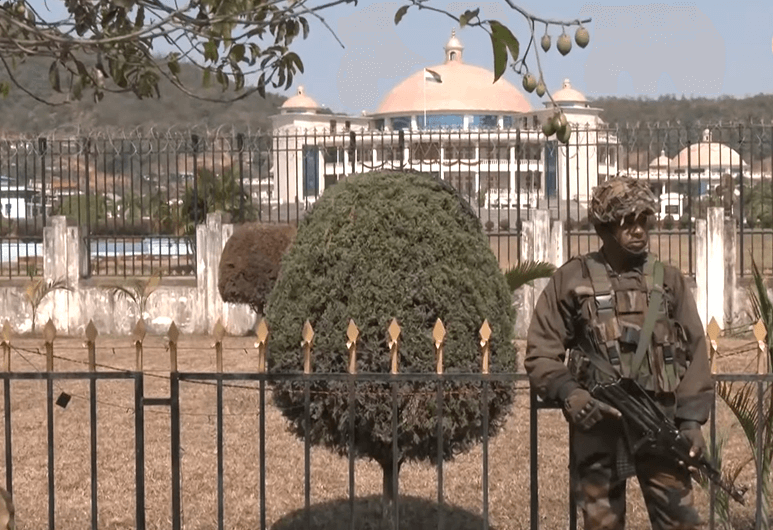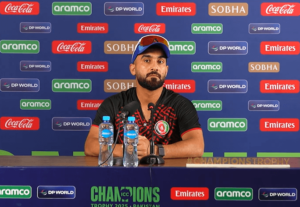President’s rule was recently imposed in Manipur, India. The decision has created a new political equation in the state, home to diverse ethnic groups.
Manipur has officially entered a state of President’s rule. In this context, the imposition of President’s rule in Manipur, located in northeastern India, has occurred 11 times through the invocation of Article 356 of the Indian Constitution. The state has now fallen under the direct control of the central authority, a consequence of the elected government’s inability to function effectively. The most recent instance of President’s rule in Manipur was enacted on June 2, 2001. This regulation endured for a total of 277 days.
Since May of last year, the ongoing violence in Manipur has resulted in over 250 fatalities, leaving approximately 60,000 individuals displaced from their homes. As a result, Chief Minister Biren Singh was compelled to step down. The state is now under the imposition of President’s rule.
The response from the Meitei community
Discontent surrounds the resignation of Biren Singh and the swift imposition of President’s rule within a week. Members of the Meitei community, the predominant group in the state, expressed to Prothom Alo that regardless of Singh’s removal, a significant portion of the Meitei population continues to hold the view that the former chief minister prioritised his own community’s interests over his constitutional responsibilities.
His enduring popularity in the community persists, despite the efforts of a faction within the party that has sought to undermine him. For instance, Thokcham Satyabrata Singh, a BJP Speaker in the Legislative Assembly, and Yumnam Khemchand Singh, the Rural Development and Panchayat Minister of Manipur, have been vocal opponents of the Chief Minister.
Despite being from the Meitei community, these two leaders from the BJP opposed Singh. Thokcham Satyabrata Singh is regarded as the key figure behind Singh’s resignation. The leader of the anti-Biren Singh faction stated that he would not obstruct a no-confidence motion brought forth by the opposition, should it arise, in his capacity as Speaker. He will permit the no-confidence motion to be introduced. Additionally, other tribal MLAs, including the BJP’s Kuki representative, have already voiced their opposition to Biren Singh.
Nonetheless, it is unwarranted to assume that the entire Meitei community stands in opposition to the Chief Minister, according to a researcher-professor from the Meitei community, who requested anonymity, speaking to media on Friday (February 14) after conducting a thorough analysis of the situation.
A source informed us that the entire Meitei community does not oppose the former Chief Minister. There is clear dissatisfaction with the government’s inaction, yet there is an understanding that the former Chief Minister finds himself in a powerless situation. This represents a strategy by the opposition and discontented members within the party aiming to unseat the Chief Minister and take control. The opposition is seeking to launch a fresh public relations campaign in hopes of positioning themselves for the upcoming elections.
In essence, one should not conclude that Biren Singh’s resignation signifies the end of his political journey. The BJP has the potential to reinstate him in the future, or Singh might return by securing victory in the upcoming elections. His influence within the majority Meitei community is notable, as his popularity has risen among the Meiteis, despite a decline among the Kukis.
“Biren Singh is being perceived as somewhat of a political martyr, a development that is anticipated to aid his return in the future,” the researcher stated.
It is evident that the Meitei communities expressed their expectation that their elected representatives would select the next chief minister. However, there is a sense of disappointment that this has not come to fruition. The Coordinating Committee on Manipur Integrity (KOCOMI), representing the Meitei community, has called for an immediate cessation of President’s rule and the selection of a new leader, specifically a chief minister.
“Following Biren Singh’s resignation, it was imperative that a competent individual be entrusted with the role of chief minister.” “The assembly leader should have been elected by the Manipur MLAs,” stated Somarendra Thakcham, who previously served as the chief coordinator of KOCOMI. He stated that rather than choosing a leader from the majority community, the MLAs were summoned to Delhi individually. The issue of consolidating authority in Delhi ultimately led to the imposition of President’s rule.
The stance of Kukis
Conversely, Ginja Bhuwaljang, representing the Forum of Indigenous and Tribal Leaders, including Kukis, stated that accepting another Meitei Chief Minister during President’s rule is nearly unfeasible for them. The Kukis have lost faith in the Meitei, rendering the appointment of a new Meitei Chief Minister as insufficient for restoring confidence.
In this context, various tribal organizations, including the Kukis, are expressing support for the implementation of President’s rule. The central issue at hand is whether, following this development, other ethnic groups, including the Kukis, will relent in their pursuit of separate administration or the designation of the tribal-controlled area as a union territory. Currently, various tribal groups, including the Kukis in Manipur, remain steadfast in their demands.
They have expressed that living in a state governed by a majority Meitei is not feasible for them. Due to a decline in trust towards the Meitei leadership. Despite the implementation of President’s rule, they chose not to pursue this path. Bhuwaljung remarked, ‘We are optimistic that the implementation of President’s rule will initiate efforts to end the violence, thereby creating a favorable atmosphere for political dialogue.’
Nonetheless, the Kokomi has explicitly stated that they will not engage in any discussions regarding the demands for separate administration or union territory put forth by various minority ethnic groups. Statements have already begun to be issued regarding the issue in an effort to shape public opinion. Before the dialogue commenced between the two primary factions, the Kukis and the Meiteis, a noticeable divide had already surfaced. It has also been articulated at the central level that establishing a separate administration within the state is not feasible.
At the central level, BJP’s Sambit Patra has unequivocally stated that the Kukis and other minority ethnic groups will not be granted a separate administration under any circumstances. On Friday, he stated that there would be no compromise regarding the territorial integrity of Manipur.
The Kukis and various other ethnic groups remain silent on the potential suspension of their struggle, even in the absence of a separate administration or union territory. A fundamental dispute exists between the two sides on key issues. In this context, it has been reported that civil society groups on both sides have begun engaging in dialogue.
In Kolkata, Guwahati, and North India, a series of meetings took place, facilitating civil society discussions among the Kukis, various ethnic groups, and the Meitei community. An attendee at the meeting informed Prothom Alo that the issue remained undisclosed. He stated, “We are optimistic that we have initiated the process of addressing the misunderstandings and the conflict that has emerged.” However, the government is set to terminate it.
Nonetheless, it remains challenging to determine if this will lead to peace in Manipur. However, the imposition of President’s rule has provided a significant edge to the BJP. The primary opposition party, the Congress, has generated a significant issue.
What are the strengths of the BJP?
The consensus is clear: the BJP has lost its majority in the assembly there. During the recent Lok Sabha elections, the electorate demonstrated their skepticism towards the BJP by securing victories in both Lok Sabha seats in Manipur.
Recently, numerous leaders from the BJP, encompassing Meitei, Kuki, and various tribal representatives, geared up to voice their lack of confidence in the government headed by Biren Singh. There was a strong likelihood that the Congress or another party would initiate a no-confidence motion, with backing from the anti-Chief Ministerial faction and key political opponents within the BJP, potentially leading to the government’s downfall. The central leadership of the BJP exerted pressure on the Chief Minister to facilitate his removal, aiming to prevent this situation. However, they were unable to transfer the party’s responsibilities in the state even after 72 hours had passed.
In this scenario, the BJP had a different route to take as they approached the elections. Instead of pursuing an alternative approach, they opted to impose President’s rule in the state, signifying that the central government will now take direct control of Manipur.
The upcoming elections in Manipur are set to take place in March 2027, according to the current schedule. If the renewal of the president’s rule occurs in phases, it has the potential to extend for as long as three years. Elections in the state might not take place until March 2028. The Constitution of India stipulates that when Article 356 is invoked, the restoration of the democratic process is required within a timeframe of three years. Should the BJP utilise this entire timeframe, contingent upon Parliament’s approval, elections in Manipur are unlikely to occur before March 2028.
The BJP faced defeat in both seats during the Lok Sabha elections held in the state last year. One could infer that, should the assembly elections take place, the BJP might have faced defeat while the Congress could have emerged victorious. Observers in Manipur suggest that the imposition of President’s rule was a strategic decision, aimed at postponing elections for the foreseeable future. If elections were conducted, it is clear that the state would have undoubtedly leaned towards the Congress party.
The government was not dissolved; it was merely suspended.
Meanwhile, should the situation stabilize, there is potential for the return of the Biren Singh administration, as explicitly noted by Odisha MP Sambit Patra, who oversees the BJP’s activities in North-East India. On Friday, he stated that the assembly was not dissolved; rather, it was suspended. This suggests that the formation of a new state government led by the BJP is a potential outcome.
Patra stated, ‘The assembly remains intact and can be reinstated at any moment in the future, should the President of India deem it appropriate.’ The consideration of that will hinge on the circumstances at hand.
The BJP has kept both options on the table in this situation. If a leader emerges in the future or if circumstances stabilize, there is potential to reinstate this assembly. If that scenario unfolds, they have the option to declare elections in three years and proceed with the electoral process. If elections were conducted at this moment, the Congress would certainly be in a leading position. Rather than pursuing that course of action, the BJP opted to delay proceedings by adjourning the assembly.
The Congress has criticized the central government’s decision, asserting that the imposition of President’s rule by the BJP demonstrates a total breakdown of law and order in the region. Rahul Gandhi, the party’s principal figure, along with prominent leaders Jairam Ramesh and KC Venugopal, have released statements denouncing it. However, the Congress has remained silent on the advantages that the BJP has gained as a consequence. Venugopal expressed optimism that discussions with all involved parties will lead to a resolution of the issue. However, it remains uncertain at this moment whether that hope will come to fruition.











+ There are no comments
Add yours